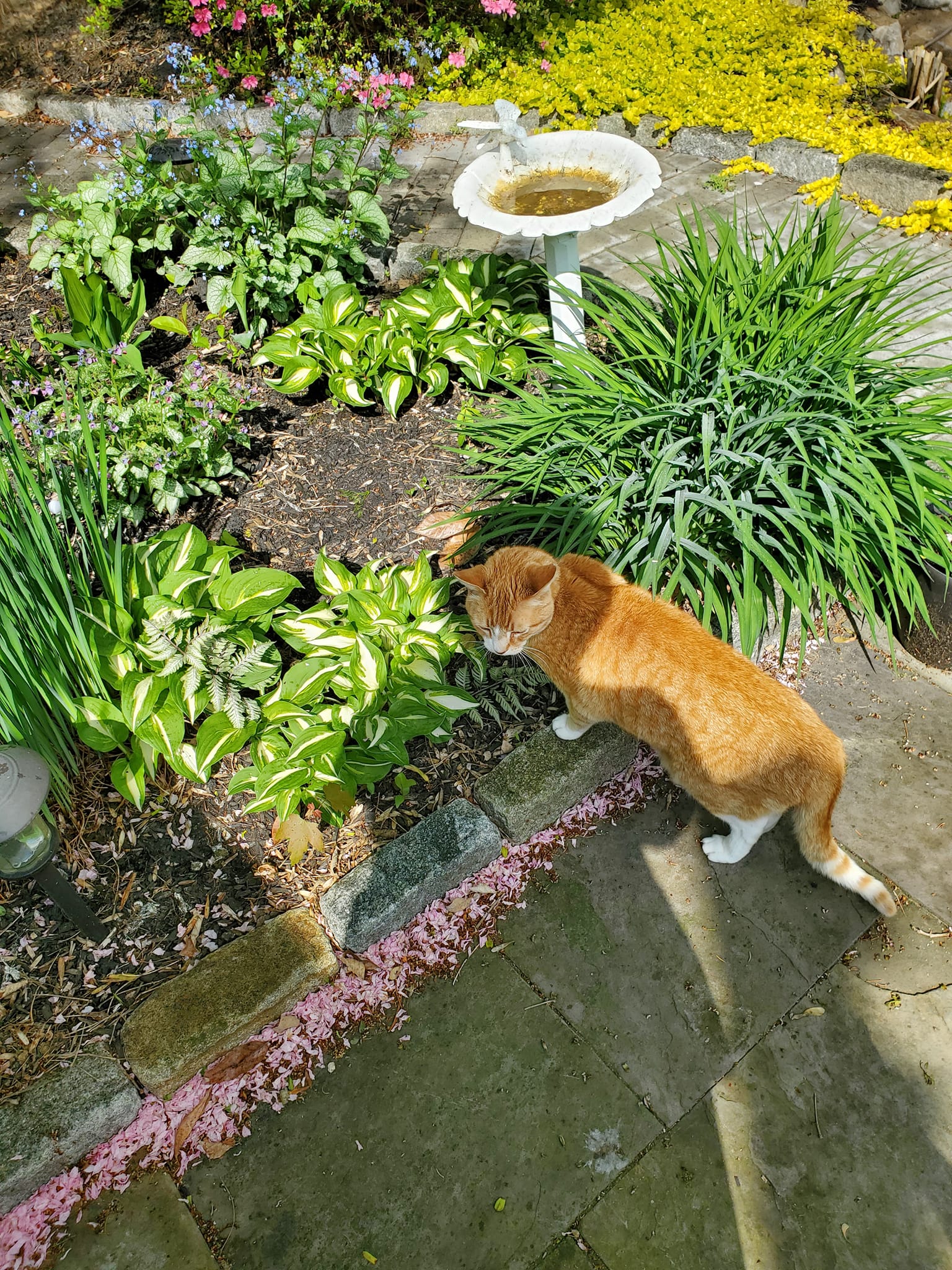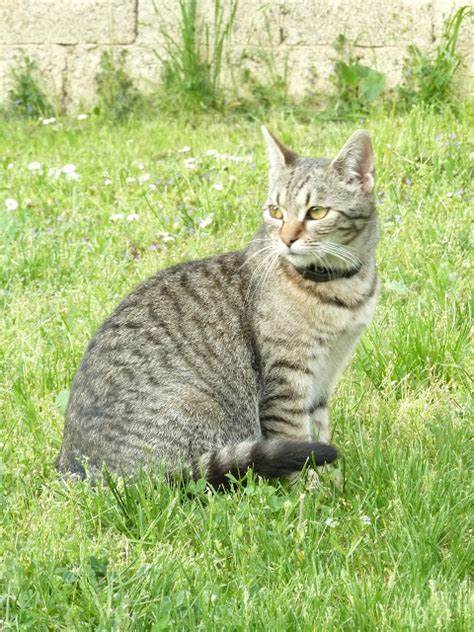Besides dogs, cats are the other animals popularly kept in many homes as pets.
However, having cats at home does not mean you would be okay with feral and stray cats invading your home.
Although cats are generally harmless, having them in your yard can easily frustrate you.
Uninvited cats can turn an otherwise beautiful and relaxing outdoor space into an unpleasant area.
A continuous invasion of your lawn by stray cats will test your patience even if you love cats but do not deal with them by resorting to violence.
Keep reading to learn natural ways to keep cats out of your yard. Whether it’s through deterrents or repellents, we’ve got you covered.
So, if you’re ready to reclaim your yard, let’s get started!
Why Are Stray Cats A Problem?
Also known as unowned or semi-owned cats, stray cats do not typically have an identifiable owner and visit different households.
These stray cats are problematic for the following reasons:
1. They can endanger your family’s health
The primary carrier and host of toxoplasmosis are cats. This parasite-caused infection can infect almost all warm-blooded animals, including humans.
A cat infected with this infection can shed up to millions of eggs 2 to 3 weeks following the infection.
You can be infected with this parasite if you accidentally consume contaminated soil by not washing your hands after gardening or consuming unwashed vegetables.
You can also get it if you directly touch cat feces.
Read More:
2. They can endanger your cat’s health
Stray cats will likely fight with your cats putting them in danger of diseases like Feline Immunodeficiency Virus (FIV) since unowned cats are usually unvaccinated.
The fights can also lead to abscesses beneath your cat’s skin.
3. They threaten wildlife
Cats prey on different wildlife, such as birds, reptiles, mammals, and frogs.
They can also infect wildlife with toxoplasmosis. One stray cat can kill an average of 449 animals annually.
4. They are a nuisance
The presence of stray cats in your yard can lead to defecating, spraying, and digging in your lawn, catfights, and can even wander into your house.
12 Effective Ways to Keep Cats Out of Your Yard and Garden
As mentioned earlier, do not use violence to get rid of cats on your lawn because there are better ways of getting this done.
1. Eliminate food sources
You may not be offering neighborhood cats food intentionally, but the reason they frequent your home is likely because they find food there.
The food sources may include leaving your cat’s food outside, trash cans, or having mice and birds in your yard.
Make your home unattractive to stray cats by covering your trash cats and keeping your pet food indoors.
Also, keep your lawn well-maintained and clean and get rid of rats.
2. Remove what attracts them
Besides food, stray cats may come to your lawn because something is luring them there.
For instance, these cats can use your children’s sandbox (if you have one) or garden as their litterbox. Find ways to make your yard unappealing to them.
3. Use water
Since cats do not like water, you can use your garden hose or motion-sensor sprinklers to keep unwanted cats away.
You can spray the cats with water whenever you see them using a hose or bottle. The issue with this method is that you must catch the cats trespassing.
Alternatively, get a motion-sensor sprinkler which is more convenient.
4. Use Scent repellents
Cats find some scents strong and overbearing because they have highly sensitive noses. Certain scents are powerful enough to chase them out of your lawn.
Natural scents you can use to repel cats in yard include:
- Vinegar
- Essential oils
- Citrus
- Pipe tobacco
- Coffee
- Blood meal
- Spices like cayenne pepper
Spray these repellents around your yard to keep cats away. Be careful when using vinegar because it can kill grass and other vegetation.
Furthermore, note that these scent repellents may work on some cats and fail in others because certain smells bother some cats and have no effect on others.
Therefore, try different outdoor cat repellent to see what works. In addition, you will need to reapply the repellent to stay effective since the scents fade with time.
5. Plant Cat repellent plants
Cats do not like the natural scent of some plants, so keep these felines away from your yard by planting these plants.
Plants recommended as cat repellents include:
- Pennyroyal
- Lavender
- Lemongrass
- Rue
- Geraniums
- Scaredy-cat plant
- Citronella
Keep in mind that these plants are toxic to humans, cats, and other animals. If you want a cat-repelling plant that is safe for animals and people, plant curry plant and rosemary.
6. Use sound
Invest in an ultrasonic animal repeller and let the sound deter cats from your yard.
These devices produce a high-frequency sound humans cannot detect but irritate cats and wild animals like deer, opossums, and raccoons.
Put the devices around your yard perimeter for the best outcome. Also, get an ultrasonic animal repeller for bigger pests and outdoor use.
7. Try cat-proof fencing
A regular fence will not keep cats out of your property since these cute animals are excellent tightrope walkers and climbers.
Fortunately, some fences are designed to keep them away from your yard.
You can cat-proof your yard fence using a slanted panel of chain-link or wire along a standard fence’s top.
Alternatively, install a rolling bar on your current fence’s top.
8. Get a dog
Bringing home a dog can help keep unwanted cats away but keep in mind that your dog needs to be outside for this strategy to work.
This is because cats are not bothered by canine scent. In addition, it is worth noting that dogs are a serious commitment (they require a lot of care and time), so do not get a dog just to keep cats away.
9. Use textures
Most cats are fussy about what their paws touch, so you can keep them away by laying down textures cats do not like.
Some things cats hate stepping on include:
- Pine cones
- Mulch
- Gravel
- Chicken wire
- Aluminum foil
- Double-sided tape
- Sandpaper
10. Block entryways to hide holes
Stray cats will use dark, warm spaces in your yard to hide from predators and humans.
These include underneath decks, enclosed, undisturbed areas, and crawl spaces.
Keep cats from accessing these areas by installing lattice or chicken wire.
11. Make potential digging or lounging spots uncomfortable
Your yard may contain flower beds or a vegetable garden cats love to dig or warm spots they like lounging on.
Protect your yard and its vegetation by making the cat’s potential digging and lounging spots uncomfortable.
You can use the following to do so:
- Sharp Mulch– cover your yard’s soil using sharp or round-edged mulch made from crushed eggshells, pine cones that have sharp spines, or rough rocks.
- Carpet Runners– a carpet runner with plastic spikes makes cats uncomfortable, so put it in areas unwanted cats frequent.
- Chicken Wire: this will keep cats from digging your yard.
- CatScat Mats: the flexible, long plastic spikes will make cats uncomfortable but will not harm them.
12. Talk to the owner
A cat can wander off from their home to your yard. If you can, track the owner and ask them to keep their cat off your home.
If that does not work, consider contacting animal control or seeking legal recourse.
What Is The Difference Between A Stray Cat And A Feral Cat?
Feral and stray cats are all the same species but differ in how they interact with people. Therefore, before interacting with a cat that shows up on your property, you must first find out if they are feral or stray.
Stray Cats
A stray cat is a cat that has socialized with humans or lived indoors at some point but lost or left its home.
Their owners may have also abandoned them and do not have regular contact with humans.
A stray cat can turn feral the more its contact with people dwindles, thus becoming less social.
Stray cats can be re-integrated into pets. However, after living outdoors for a long time, it will take time to re-acclimate to indoor living.
Feral Cats
These are unsocialized outdoor cats who have never physically interacted with humans.
On the other hand, they may have interacted with people, but that relationship has diminished, and they are no longer familiar with it.
These cats fear humans and will probably never enjoy indoor living or become lap cats. Feral cats will find places to hide from humans and won’t approach you.
However, you can socialize the kittens of feral cats when young and adopt them to homes.
Feral cats can be part of a colony, while stray cats will probably live solitary lives. Also, feral cats do not purr, beg, or meow, but stray cats can be vocal.
Stray cats can move like house cats, make eye contact, or blink. On the other hand, feral cats may crouch, crawl, and avoid eye contact.
Final Remarks
Well folks, there you have it – a comprehensive guide on how to keep cats out of your yard naturally. To recap.
Natural ways to keep cats out of your yard:
- Plant cat-repelling plants such as rue, lavender, and lemon thyme.
- Create a physical barrier using chicken wire or a motion-activated sprinkler system.
- Use natural scents such as citrus or eucalyptus to deter cats.
- Provide alternative scratching and lounging options for stray cats in your neighborhood.
- Encourage your neighbors to keep their cats indoors or at least supervise them when they’re outside.
By implementing these tips, you can enjoy a cat-free yard without resorting to harsh chemicals or cruel methods.
Remember, the key is to discourage cats from entering your yard in the first place, rather than trying to chase them away once they’re already there. So, go forth and enjoy your feline-free backyard!

Hey there, I’m Derek Schew, a writer for Lawnholic.com, where we cover everything and anything related to lawns. As someone who’s spent countless hours tending to my own lawn, I’m passionate about sharing my knowledge and helping others achieve the perfect yard. From lawn care tips to product reviews, I’m committed to providing our readers with the most accurate and up-to-date information available. So whether you’re a seasoned lawn enthusiast or just getting started, I invite you to join our community and discover the joys of a lush, green lawn.


